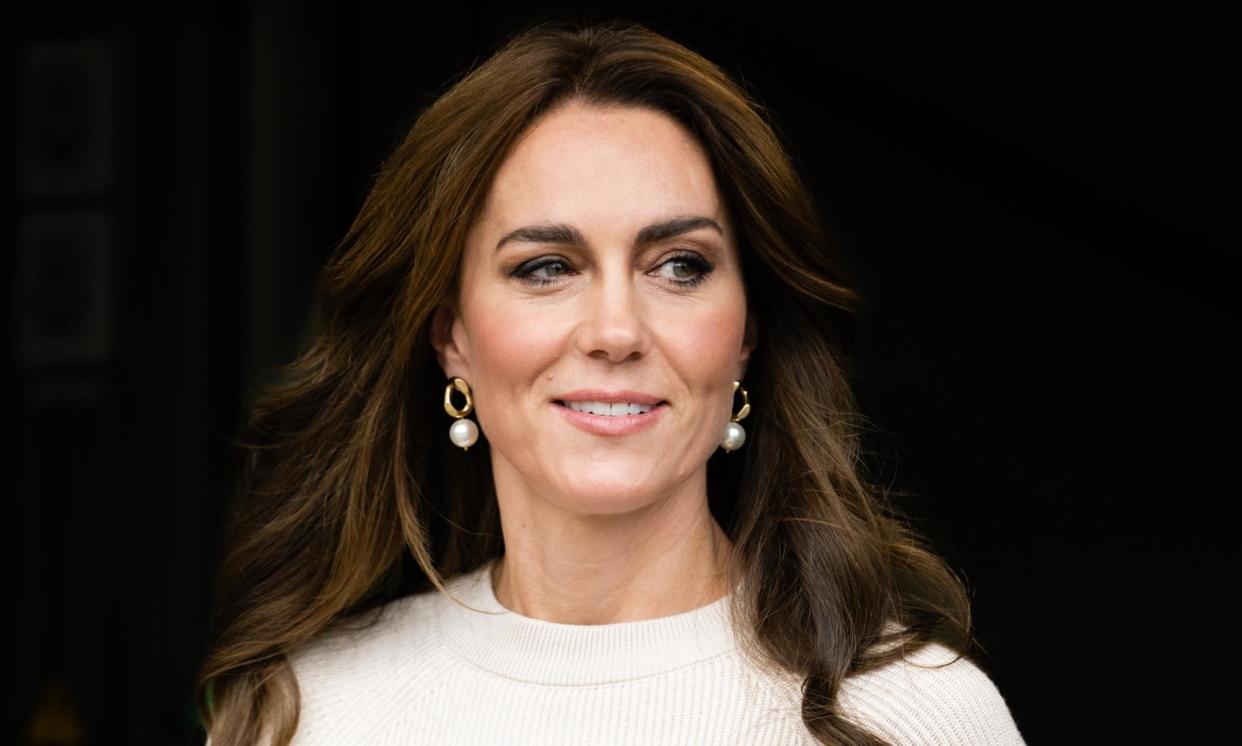What we know about the Princess of Wales’s cancer diagnosis

The Princess of Wales has become one of hundreds of thousands of Britons diagnosed with cancer every year.
Here is what is known so far about Catherine’s condition.
What type of cancer has she been diagnosed with?
Catherine, 42, has been diagnosed with an unspecified form of cancer.
In a personal message issued on Friday evening, the princess said that when she underwent major abdominal surgery in January, “it was thought that my condition was non-cancerous”.
The surgery, which took place at the London Clinic, was successful. After 13 nights in hospital, the princess left the clinic on 29 January. “However, tests after the operation found cancer had been present,” she said on Friday.
Kensington Palace said it would not be sharing any further medical information about the form or stage of cancer that was discovered.
What kind of tests were performed?
Details of the type of test have not been divulged but diagnostic tests for cancer can involve blood tests, scans and biopsies.
A biopsy is a medical procedure that involves taking a small sample so it can be examined under a microscope to identify whether there are abnormal cells present. Catherine said that “tests after the operation found cancer had been present”.
What is being done?
In her personal message, the princess said her medical team advised that she should undergo a course of preventive chemotherapy.
Chemotherapy is a treatment where medicine is used to kill cancer cells. There are many different types of chemotherapy medicine but they all work in a similar way. They stop cancer cells reproducing, which prevents them from growing and spreading in the body.
Catherine said on Friday she was “in the early stages” of the treatment.
When did she begin treatment?
The Guardian understands that Catherine began a course of preventive chemotherapy in late February.
When will the treatment finish?
She is still in the early stages and the decision on when it could be completed will be subject to medical advice.
How is Catherine feeling?
She said the last couple of months had been “incredibly tough” for her and her family but she was in good spirits and focused on recovering.
“I am well and getting stronger every day by focusing on the things that will help me heal; in my mind, body and spirits.”
The princess added that she was looking forward to returning to work but for now “must focus on making a full recovery”.
Will her diagnosis raise awareness?
Yes. When her father-in-law, King Charles, shared his diagnosis of cancer earlier this year there was a significant increase in searches for the condition on the NHS website.
The head of the NHS described Catherine’s cancer diagnosis as “shocking” but praised her for speaking publicly about the condition.
Amanda Pritchard, NHS England’s chief executive, said: “Speaking out about it is really brave and it can help others to get worrying signs and symptoms checked. If you’re worried about cancer, the NHS website has more information here.”
How many people are diagnosed with cancer every year in the UK?
According to Macmillan Cancer Support, about 393,000 people in the UK are diagnosed with cancer each year.
Half of those diagnosed with cancer in the UK survive for at least 10 years after diagnosis, according to Cancer Research UK figures, but survival rates vary for each type of cancer.
Each year about 167,000 people die from cancer in the UK. In 2021, one in four of all deaths were caused by cancer, the charity says on its website.
How rare is it for someone to be diagnosed with cancer in their 40s?
Anyone can get cancer, but cancer at a young age is rare. Most cases of cancer are in people aged 50 and over.
However, the number of under-50s worldwide being diagnosed with cancer has increased by nearly 80% in three decades, according to the largest study of its kind.
Global cases of early onset cancer increased from 1.82m in 1990 to 3.26m in 2019, while cancer deaths of adults in their 40s, 30s or younger grew by 27%.
Were both King Charles and the Princess of Wales diagnosed with cancer after being treated for something else?
Yes. Buckingham Palace said that during the king’s procedure for a benign prostate enlargement, a “separate issue of concern” was noted. Further diagnostic tests identified a “form of cancer”, the palace said.
Catherine only found she had cancer after undergoing abdominal surgery in January. Kensington Palace has not disclosed why she needed surgery in the first place.
That is why it is important to be aware of any new or worrying symptoms or changes to your health. Although it is unlikely to be cancer, it is important to speak to a GP so they can investigate. Finding cancer early means it is easier to treat.


